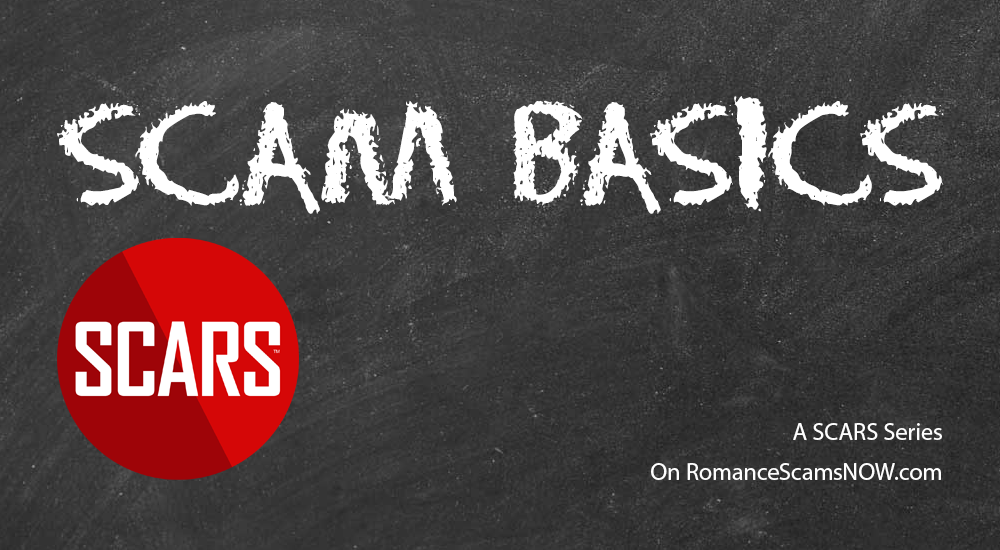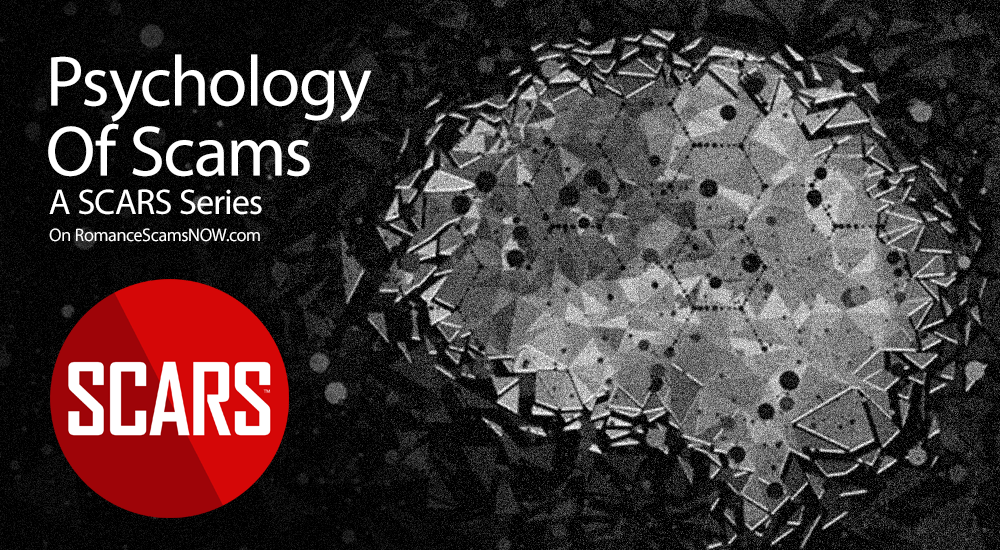
SCARS Institute’s Encyclopedia of Scams™ Published Continuously for 25 Years

What Victims Feel Is Real, But It Was The Result Of Love Bombing
In previous articles, we have talked extensively about the various manipulative techniques and tactics that relationship/romance scammers use on their victims to control them.
But often the victims do not fully understand that what they felt was valid and real, but it was done without their consent.
Overview
Romance scammers are con artists who use manipulation techniques to lure and exploit individuals looking for love online or even those not looking for it.
Most of these individuals have some vulnerabilities but are trusting and open to building connections with others. Romance scammers take advantage of this vulnerability to manipulate their victims into feeling emotions without their consent, using techniques like amygdala hijacks (love bombing.)
Amygdala Hijacks & Love Bombing
Amygdala hijacks are a form of emotional manipulation that is designed to bypass the conscious mind and trigger an emotional response. The amygdala is a part of the brain that is responsible for processing emotions, and hijacks occur when this part of the brain is activated before the individual has a chance to consciously process the situation.
Love Bombing is just a form of an amygdala hijack that focuses on triggering love and positive emotions. But they can also be used to trigger negative emotions too.
Just remember, the feelings were valid, but it was not love! Victims do not fall in love, they are manipulated into feeling those emotions. It was just sustained controlled and manipulated emotions.
Love Bombing
Love bombing (or amygdala hijacking) is another manipulation technique used by romance scammers. It involves showering the victim with attention, affection, and gifts to create a sense of emotional dependence. Love bombing can make the victim feel special, loved, and desired, leading them to lower their guard and trust the scammer more easily.
Scammers may use love bombing by sending frequent messages, showering their victim with compliments, and creating a false sense of intimacy. They may also use gifts, such as flowers or jewelry, to create a sense of obligation and emotional connection.
When a victim is subjected to “love bombing”, the brain undergoes several changes. The first is an increase in dopamine levels in the reward center of the brain, which is responsible for feelings of pleasure and happiness. This dopamine surge creates a sense of euphoria and can make the victim feel good about themselves and their connection with the scammer.
The amygdala, which is responsible for processing emotions, is also activated during love bombing. The amygdala is responsible for processing emotions like fear, anxiety, and pleasure, and when it’s activated, it can create a heightened emotional response. The intense emotions that the victim experiences during love bombing can make it difficult for them to think critically about the situation and can create a sense of dependency on the scammer.
The prefrontal cortex, which is responsible for executive functions like decision-making and impulse control, is also affected by love bombing. When the reward center of the brain is activated, it can override the prefrontal cortex’s ability to make rational decisions, making the victim more susceptible to the scammer’s manipulation.
In addition to these changes in brain activity, love bombing can also activate the release of oxytocin, a hormone that is often associated with social bonding and attachment. Oxytocin can create a sense of emotional connection and trust between the victim and the scammer, making it more difficult for the victim to see through the scammer’s deception.
Overall, love bombing works by creating a false sense of emotional intimacy and dependence in the victim, which is achieved by activating the reward center of the brain, the amygdala, and the release of oxytocin. These changes in brain activity can create intense emotional responses that make it difficult for the victim to think critically about the situation, leading to increased susceptibility to the scammer’s manipulation.
The Dark Side
Romance scammers also use amygdala hijacks to create intense negative emotional experiences that trigger feelings of fear, anxiety, and greater vulnerability.
For example, a scammer may use fear tactics by creating a sense of urgency or emergency, such as claiming that they need money for a medical emergency or to escape a dangerous situation. They may also question the victim’s emotional attachment to the relationship and threaten to end it.
By triggering these intense emotions, scammers force their victims to act quickly and without thinking critically about the situation.
Scammers may threaten violence against the victim or their loved ones if they do not comply with their demands, which will trigger fear and panic to keep the victim in compliance. Or the scammers may claim that the victim has committed a crime or violated a law and threaten legal action if the victim does not comply with their demands. They may also claim to be a law enforcement officer or a representative of a government agency, further adding to the sense of fear and anxiety in the victim.
The Feelings Were Real
The hard part is understanding that what the victim felt was all real. Meaning that the emotions they felt were real, but they were 100% manipukated emotions and not something that the victims consent to.
Often, the challenge for victims is to reconcile the fact that nothing about the scam was real, yet the feelings were valid. It often helps victims to look at the situation as rape – one feels what they feel, but it was not consensual – it was a violation, and there is no shame in that (or should not be.)
The Emotional Impact
The emotional impact of romance scams can be devastating for victims, especially because of what they felt and how real the experience was – even though it was all lies.
After being manipulated and exploited, victims often feel violated, ashamed, and alone – this is normal. They may feel embarrassed about falling for the scam and may struggle with feelings of self-doubt and mistrust. Of course, the scam was not their fault and was the product of professional criminals exploiting their initial vulnerabilities and then expertly manipulating their emotions to control them.
The emotional impact of romance scams can also extend beyond the initial experience. Victims may struggle with long-term effects, such as anxiety, depression, and difficulty trusting others. They may also struggle with feelings of isolation and disconnection, as they may feel ashamed or embarrassed about their experience.
Victims of romance scams may also feel a sense of betrayal, as they were led to believe that they were building a genuine emotional connection with the scammer. This betrayal can cause a significant amount of emotional pain, and may even lead to a loss of faith in humanity.
It is for these reasons that it is important to have victims acknowledge that what they felt was real and valid, but it was beyond their control, and they are not to blame.
Summary
Remember, romance scammers use manipulative techniques like amygdala hijacks and love bombing to force their victims to feel emotions without their consent. The emotional impact of these scams can be devastating, leaving victims feeling violated, ashamed, and alone. It’s essential to educate individuals about these scams and to encourage them to seek support if they have been a victim of a romance scam.
Recovering from a romance scam alone is extraordinarily difficult – if not impossible for most victims. SCARS recommends that every victim should join a professionally managed victims’ support group and also see a trauma counselor or therapist.
To join a SCARS Support & Recovery Group visit support.AgainstScams.org to sign up.
To explore options for counseling or therapy go here.
-/ 30 /-
What do you think about this?
Please share your thoughts in a comment below!
LEAVE A COMMENT?
Thank you for your comment. You may receive an email to follow up. We never share your data with marketers.
Recent Comments
On Other Articles
- on Finally Tax Relief for American Scam Victims is on the Horizon – 2026: “I just did my taxes for 2025 my tax account said so far for romances scam we cd not take…” Feb 25, 19:50
- on Reporting Scams & Interacting With The Police – A Scam Victim’s Checklist [VIDEO]: “Yes, this is a scam. For your own sanity, just block them completely.” Feb 25, 15:37
- on Danielle Delaunay/Danielle Genevieve – Stolen Identity/Stolen Photos – Impersonation Victim UPDATED 2024: “She goes by the name of Sanrda John now” Feb 25, 10:26
- on Reporting Scams & Interacting With The Police – A Scam Victim’s Checklist [VIDEO]: “So far I have not been scam out of any money because I was aware not to give the money…” Feb 25, 07:46
- on Love Bombing And How Romance Scam Victims Are Forced To Feel: “I was love bombed to the point that I would do just about anything for the scammer(s). I was told…” Feb 11, 14:24
- on Dani Daniels (Kira Lee Orsag): Another Scammer’s Favorite: “You provide a valuable service! I wish more people knew about it!” Feb 10, 15:05
- on Danielle Delaunay/Danielle Genevieve – Stolen Identity/Stolen Photos – Impersonation Victim UPDATED 2024: “We highly recommend that you simply turn away form the scam and scammers, and focus on the development of a…” Feb 4, 19:47
- on The Art Of Deception: The Fundamental Principals Of Successful Deceptions – 2024: “I experienced many of the deceptive tactics that romance scammers use. I was told various stories of hardship and why…” Feb 4, 15:27
- on Danielle Delaunay/Danielle Genevieve – Stolen Identity/Stolen Photos – Impersonation Victim UPDATED 2024: “Yes, I’m in that exact situation also. “Danielle” has seriously scammed me for 3 years now. “She” (he) doesn’t know…” Feb 4, 14:58
- on An Essay on Justice and Money Recovery – 2026: “you are so right I accidentally clicked on online justice I signed an agreement for 12k upfront but cd only…” Feb 3, 08:16
ARTICLE META
Important Information for New Scam Victims
- Please visit www.ScamVictimsSupport.org – a SCARS Website for New Scam Victims & Sextortion Victims
- Enroll in FREE SCARS Scam Survivor’s School now at www.SCARSeducation.org
- Please visit www.ScamPsychology.org – to more fully understand the psychological concepts involved in scams and scam victim recovery
If you are looking for local trauma counselors please visit counseling.AgainstScams.org or join SCARS for our counseling/therapy benefit: membership.AgainstScams.org
If you need to speak with someone now, you can dial 988 or find phone numbers for crisis hotlines all around the world here: www.opencounseling.com/suicide-hotlines
A Note About Labeling!
We often use the term ‘scam victim’ in our articles, but this is a convenience to help those searching for information in search engines like Google. It is just a convenience and has no deeper meaning. If you have come through such an experience, YOU are a Survivor! It was not your fault. You are not alone! Axios!
A Question of Trust
At the SCARS Institute, we invite you to do your own research on the topics we speak about and publish, Our team investigates the subject being discussed, especially when it comes to understanding the scam victims-survivors experience. You can do Google searches but in many cases, you will have to wade through scientific papers and studies. However, remember that biases and perspectives matter and influence the outcome. Regardless, we encourage you to explore these topics as thoroughly as you can for your own awareness.
Statement About Victim Blaming
SCARS Institute articles examine different aspects of the scam victim experience, as well as those who may have been secondary victims. This work focuses on understanding victimization through the science of victimology, including common psychological and behavioral responses. The purpose is to help victims and survivors understand why these crimes occurred, reduce shame and self-blame, strengthen recovery programs and victim opportunities, and lower the risk of future victimization.
At times, these discussions may sound uncomfortable, overwhelming, or may be mistaken for blame. They are not. Scam victims are never blamed. Our goal is to explain the mechanisms of deception and the human responses that scammers exploit, and the processes that occur after the scam ends, so victims can better understand what happened to them and why it felt convincing at the time, and what the path looks like going forward.
Articles that address the psychology, neurology, physiology, and other characteristics of scams and the victim experience recognize that all people share cognitive and emotional traits that can be manipulated under the right conditions. These characteristics are not flaws. They are normal human functions that criminals deliberately exploit. Victims typically have little awareness of these mechanisms while a scam is unfolding and a very limited ability to control them. Awareness often comes only after the harm has occurred.
By explaining these processes, these articles help victims make sense of their experiences, understand common post-scam reactions, and identify ways to protect themselves moving forward. This knowledge supports recovery by replacing confusion and self-blame with clarity, context, and self-compassion.
Additional educational material on these topics is available at ScamPsychology.org – ScamsNOW.com and other SCARS Institute websites.
Psychology Disclaimer:
All articles about psychology and the human brain on this website are for information & education only
The information provided in this article is intended for educational and self-help purposes only and should not be construed as a substitute for professional therapy or counseling.
While any self-help techniques outlined herein may be beneficial for scam victims seeking to recover from their experience and move towards recovery, it is important to consult with a qualified mental health professional before initiating any course of action. Each individual’s experience and needs are unique, and what works for one person may not be suitable for another.
Additionally, any approach may not be appropriate for individuals with certain pre-existing mental health conditions or trauma histories. It is advisable to seek guidance from a licensed therapist or counselor who can provide personalized support, guidance, and treatment tailored to your specific needs.
If you are experiencing significant distress or emotional difficulties related to a scam or other traumatic event, please consult your doctor or mental health provider for appropriate care and support.
Also read our SCARS Institute Statement about Professional Care for Scam Victims – click here to go to our ScamsNOW.com website.
















I was love bombed to the point that I would do just about anything for the scammer(s). I was told that I was loved and was “Awesome Arwyn” (a nickname a coworker gave me) and was given praise for the improvement in the photography I took as part of a local camera club. Early into the scam (at times throughout) I was told that I should not involve my family and share about our relationship (I know now that it was a way to ensure that whose close to me could not help me). A lot of times there was an urgency to have me forward money I received from various sources to the scammer(s). I truly believed that I loved “him” and we would have a future together. It wasn’t until after the scam ended that I realized I had lived a lie for over two years. I was able to examine the consequences of my actions and the financial impact it had on me; as well as my family and friends.
I was loved bombed and sent flowers, he even asked me to find houses we could live in my town. I now realize it was all lies to get money from me.
This puts my situation in a whole new light. Yes, the feelings were real, but they weren’t consensual and caused by grooming and manipulation. It takes a bit to reconcile the real feelings against the fact that the everything was a lie. This article was very helpful and explained how I felt once I fully accepted I was the victim of a crime.
This article takes everything a step further and it explains things in a way that I can process. Yes the feelings from MY side were real. I felt real feelings for the “celebrity”. This was even acknowledging the fact that both of “us” were in an existing relationship and the fact that celebrities and everyday people rarely if ever actually end up together in a relationship. I DO feel violated, like physically violated. I am struggling to trust others. But I am so fortunate that my husband chooses to support me and is standing beside me through this. His understanding is really helping my recovery and healing.
TRUTH: I thought my relationship with the criminal was REAL, in every sense of the term. It felt good to have such wonderful feelings especially at my age which is not young and not that far from end of life. The “chinks” in the deception were there in that some of the words of love and love poems sent to me I found online while I was trying to find love poems to send to “him”. Even so, I still did not fully become “aware” until weeks later. My relationship with my scammer was blocked and deleted more than 5 – 6 times before it became permanent.
This article very accurately describes how I felt after discovering my online encounter was a scam and completely fake.
Eine sehr kompetente, fundierter, gut lesbarer Text. Ich kenne ihre Organisation schon seit Jahren und nun kann man mit dem Translate in sehr vielen Sprachen lesen , was ich gerade gemacht habe.